Global Sustainable Development Goals - report 2023
LEAVE NO ONE BEHIND
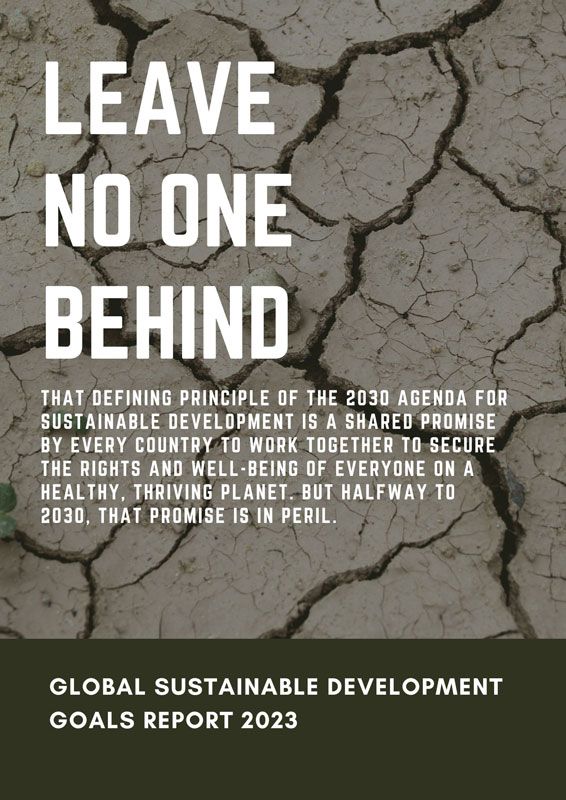
Global Sustainable Development Goals - report 2023
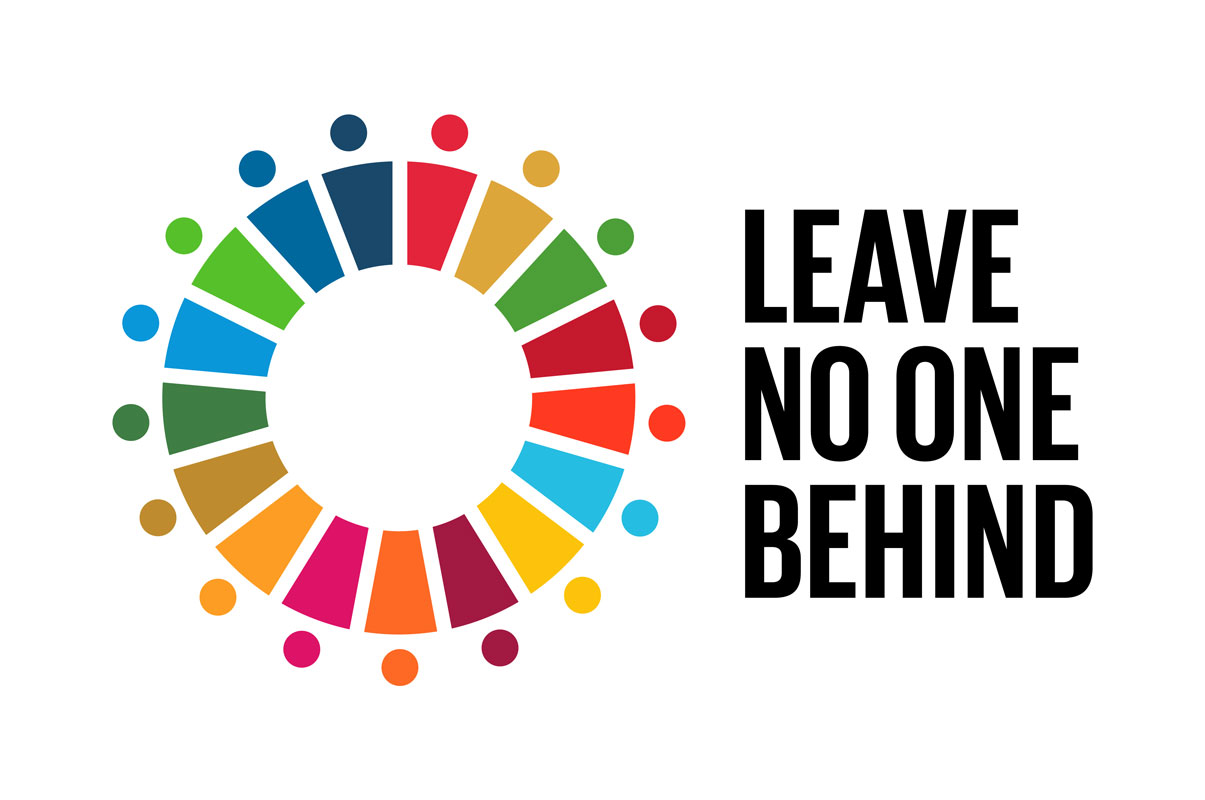
“LEAVE NO ONE BEHIND.” That defining principle of the 2030 Agenda for Sustainable Development is a shared promise by every country to work together to secure the rights and well-being of all on a healthy, thriving planet. But halfway to 2030, that promise is in peril. But where are we in 2023, halfway to 2030?
GLOBAL SUSTAINABLE DEVELOPMENT GOALS - 2023 REPORT
The UN writes in its "Global Sustainable Development Goals Report 2023" that it is time to sound the alarm: Halfway through 2030, the Sustainable Development Goals are in deep trouble. An assessment of approximately 140 goals shows that approximately half of the goals are moderately or seriously off track and for over 30 percent the situation is unchanged or worsened compared to 2015. Only 15 percent of the 140 goals are progressing satisfactory by 2023.
Below are examples of deficiencies in development regarding some of the total of 17 Sustainable Development Goals.GOAL 1: NO POVERTY
If current trends continue, 575 million people will still live in extreme poverty, most of them in sub-Saharan Africa. Furthermore, only a third of countries will have halved their national poverty levels by 2030.
GOAL 2: ZERO HUNGER
The number of people living in hunger has increased since 2015. Climate change, conflicts, growing inequalities worsen the situation. In 2022, about 9.2 percent of the world's population was exposed to chronic hunger, which corresponds to about 735 million people. This means that the number of people in chronic hunger was 122 million more in 2022 compared to 2019.
GOAL 5: GENDER EQUALITY
Only 15.4 percent of the Goal 5 indicators have progressed satisfactorily, 61.5 percent are at a moderate distance and 23.1 percent are far or very far away from the targets for 2030. At the current rate, for example, it will take an estimated 300 years to end child marriage, 286 years to close legal gaps and remove discriminatory laws, 140 years for women to be equally represented in positions of power and leadership in the workplace as men, 47 years to achieve equal representation in national parliaments.
GOAL 12: RESPONSIBLE CONSUMPTION AND PRODUCTION
The material footprint per capita in high-income countries is 10 times greater than that of residents in low-income countries.
Fossil fuel subsidies nearly doubled from 2020 to 2021.
GOAL 13: CLIMATE ACTION
The pace and scale of current climate action is completely inadequate to effectively deal with climate change. Increasingly frequent and intense extreme weather events are already affecting all regions on Earth. The world will exceed an increase of 1.5 C by 2035 and faces a warming of 2.5 C by 2100. Urgent and transformative action is essential – plans and promises are insufficient.
GOAL 15: LIFE ON LAND
The ecosystem is crucial for sustaining human life, contributes to over half of global GDP and encompasses diverse cultural and economic values. But the world is facing a triple crisis of climate change, pollution and loss of biodiversity. Plant and animal species are vital to our existence. Yet, despite this importance, the world is now facing the greatest extinction event since the disappearance of the dinosaurs.
GOAL 17: PARTNERSHIP FOR THE GOALS
Developing countries are grappling with an unprecedented rise in external debt following the COVID-19 pandemic, compounded by challenges such as record inflation, escalating interest rates, competing priorities and limited fiscal capacity, underscoring the urgent need for debt relief and financial assistance.
Despite record global trade increases ($32 trillion in 2022), the share of exports from Least Developed Countries (LDCs) has stagnated and is far from the target: LDCs' share of global exports was only 1.1 percent in 2022.
FAIR TRADE IS A GOOD TOOL FOR SUSTAINABLE DEVELOPMENT
The 10 principles of Fair Trade reflect ecological-socio-economic aspects of Sustainable Development.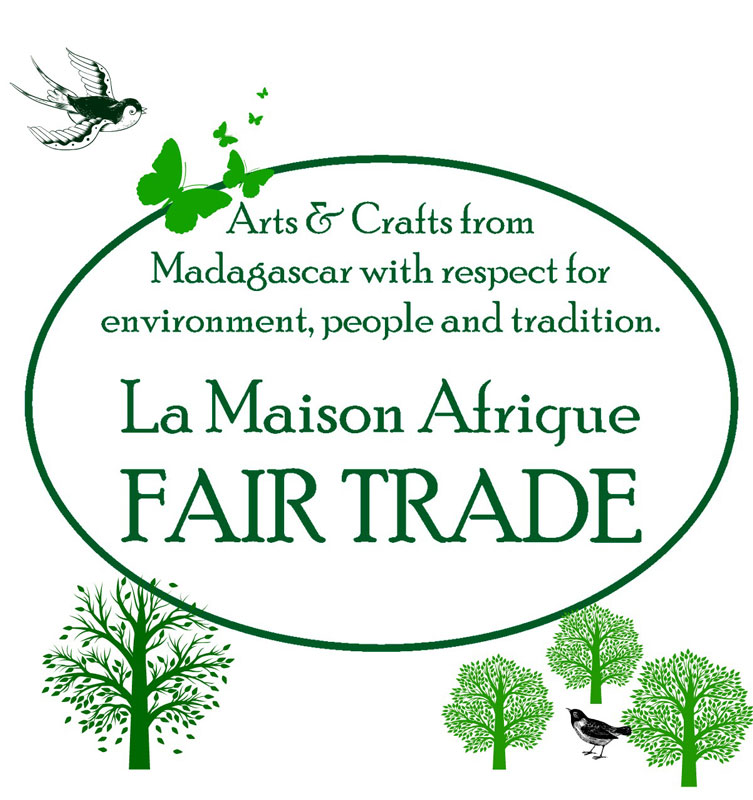 La Maison Afrique FAIR TRADE focuses, since its start in 1995, on environmental care, poverty reduction, equality in one of the world's economically poorest - but ecologically richest - countries: Madagascar. The organization provides long-term support to small-scale artisans, mainly women in rural areas. An important part of the support is interest-free loans for women. The materials used are always local natural materials or locally collected waste. The material that is mainly used is locally growing natural fibres, which are harvested, sun-dried and prepared manually. Dyes used meet requirements for health and the environment. The craft gives the women important income and empowerment - at the same time as craft traditions and craft knowledge are being preserved and comes to good use. The income from the craft supplements subsistence farming and contributes to paying for the children's education.
La Maison Afrique FAIR TRADE focuses, since its start in 1995, on environmental care, poverty reduction, equality in one of the world's economically poorest - but ecologically richest - countries: Madagascar. The organization provides long-term support to small-scale artisans, mainly women in rural areas. An important part of the support is interest-free loans for women. The materials used are always local natural materials or locally collected waste. The material that is mainly used is locally growing natural fibres, which are harvested, sun-dried and prepared manually. Dyes used meet requirements for health and the environment. The craft gives the women important income and empowerment - at the same time as craft traditions and craft knowledge are being preserved and comes to good use. The income from the craft supplements subsistence farming and contributes to paying for the children's education.
All goods are shipped by boat from Madagascar to Sweden.
Madagascar is one of the currently 46 countries in the list of the world's Least Developed Countries (LDCs) - and is the 5th poorest economically (GNI per capita). However, it is not poor in terms of craftsmanship, ambitions, local natural materials - or waste that needs to be collected and recycled. Local manufacturing provides the best added value, work opportunities, development.
Dear consumer, support the artisans on Madagascar and global Sustainable Development by buying their goods in the shops and church communities that make up La Maison Afrique FAIR TRADE resellers.
______________________________________________________________________________________________________-
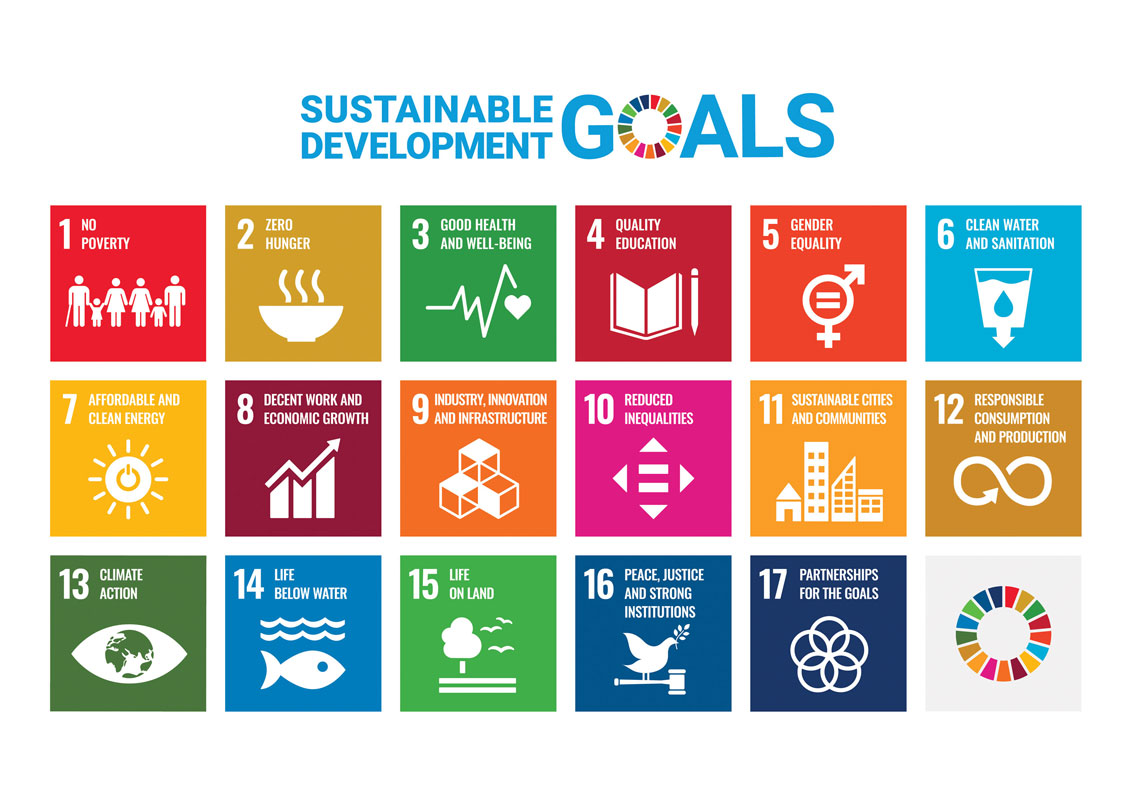 GOALS FOR SUSTAINABLE DEVELOPMENT Agenda 2030 for Sustainable Development was adopted by all UN member states in 2015. The core is the 17 global goals for Sustainable Development: Sustainable Development Goals (SDG). The 2030 goals and agenda are a call to all countries to take action and to work together in global partnership. They demonstrate that ending poverty must go hand in hand with strategies that improve health and education, reduce inequality and stimulate economic growth – all while tackling climate change and working to preserve our oceans and forests.
GOALS FOR SUSTAINABLE DEVELOPMENT Agenda 2030 for Sustainable Development was adopted by all UN member states in 2015. The core is the 17 global goals for Sustainable Development: Sustainable Development Goals (SDG). The 2030 goals and agenda are a call to all countries to take action and to work together in global partnership. They demonstrate that ending poverty must go hand in hand with strategies that improve health and education, reduce inequality and stimulate economic growth – all while tackling climate change and working to preserve our oceans and forests.
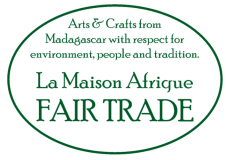
La Maison Afrique FAIR TRADE
-
+46 (0) 706017777
-
This email address is being protected from spambots. You need JavaScript enabled to view it. -
Trustorps Gård
311 65 Vessigebro
SVERIGE -
VAT/Orgnr: SE556526323201

